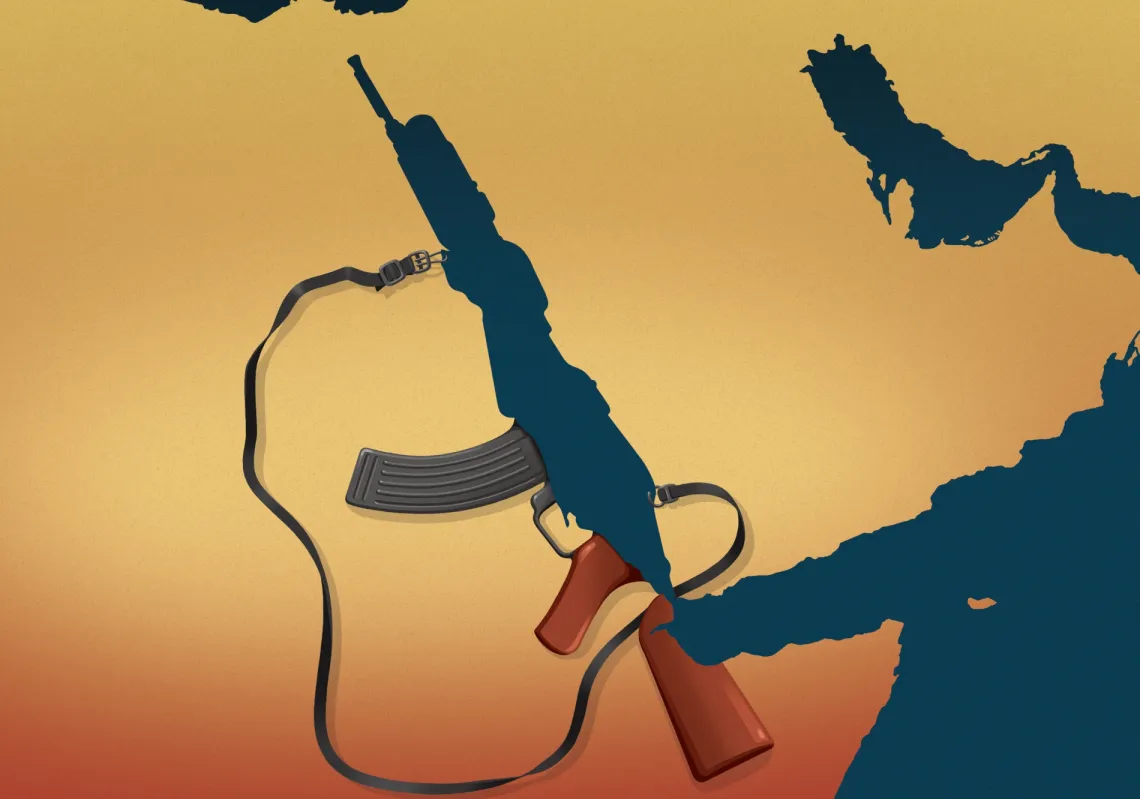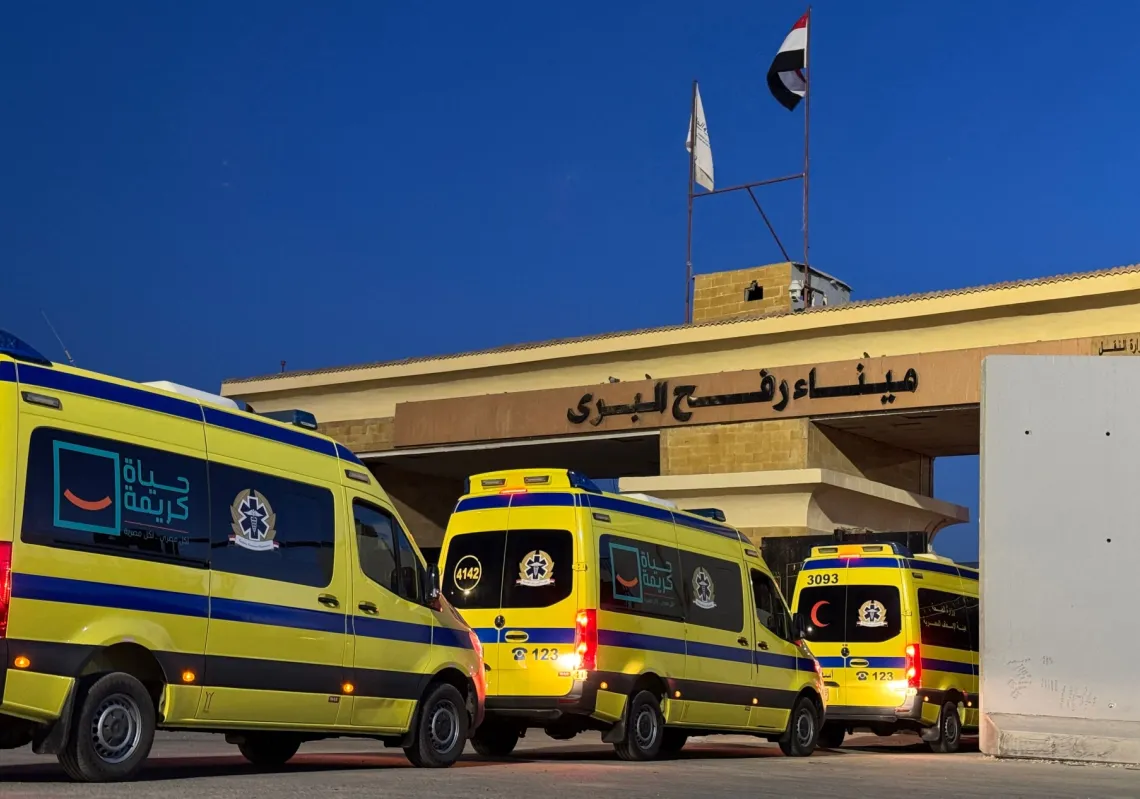The Middle East is pinning its hopes on the vaccine rollouts for an imminent economic recovery after the coronavirus pandemic hit a region already battered by conflicts and economic turmoil.
The number of new coronavirus cases in the Middle East has exceeded 8 million as cold weather and the holiday season doubled confirmed cases in just two months.
Countries in the region have started vaccination campaigns and imposed stricter preventive measures to limit the spread of the virus, hoping that this will be a "recipe" for recovery.
Bassant Fahmi, an Egyptian economist and member of the Economic Committee at the Egyptian Parliament, said that Middle Eastern countries whose economy depends on oil and tourism have been hit hardest due to the decline in oil prices and tourism flows. Not to mention states that are submerged in armed conflicts, political unrest and economic failures, she said.
"I believe that with the vaccine rollouts in many Middle Eastern countries, the coronavirus crisis will start to have less impact on regional economies and will open the door for the return of tourism," Fahmi told Majalla in a telephone interview.
In an updated forecast this month, the International Monetary Fund said that oil prices "will average just above $50/b in 2021, a more than 21 percent rise from 2020's depressed level, as the rollout of vaccines and fiscal stimulus programs will help the global economy post a stronger-than-expected recovery from the pandemic".
The World Bank also said that economic activity in the Middle East and North Africa is forecast to advance by 2.1 percent this year based on optimism vaccines will help return the world back to normal.
"Saudi Arabia and the United Arab Emirates are the top markets to focus on during the year. These markets have momentum as they have accelerated vaccine plans and have many foreign investments," Fahmi said.
GULF STATES LEAD THE WAY
According to the Oxford-based Our World in Data science website, Gulf countries are leading the region in inoculating their peoples.
Saudi Arabia, the United Arab Emirates, Qatar, Kuwait, Bahrain, and Oman were the first countries to order doses from Pfizer-BioNTech, Moderna and Sinopharm, and launch their vaccination campaigns.
According to Our World in Data report, the United Arab Emirates and Bahrain are also among the world leaders in vaccination rates.
"The UAE has currently administered 9.52 doses per 100 people, a total of more than 941,000 vaccinations. Bahrain is at 4.25 doses per 100 people, which would be around 66,000 vaccinations," the report said.
Saudi Arabia has administered 0.29 doses per 100 people and is planning to level up its vaccinations quickly in the near future, the report added.
This month, Saudi Arabia also launched a new mobile application for vaccinations. Through the "Sehaty" or "My Health" app, citizens can sign up to receive the vaccine within 24 hours.
As the Gulf states get vaccinated, they are also working to ensure that life-saving vaccines are made available to the poorer, conflict-ridden countries.
Saudi Finance Minister Mohammed Al-Jadaan announced on Tuesday that the Kingdom is negotiating with manufacturers to supply low-income countries with vaccines to prevent Covid-19.
In a virtual meeting during the World Economic Forum in Davos, the Saudi minister said that Yemen and some African countries, for example, will not be able to obtain enough vaccines through the COVAX program, which is a global mechanism for the purchase and distribution of Covid-19 vaccines.
COVAX has secured nearly 2 billion doses of coronavirus vaccines to be distributed across the 190 participating countries.
While Abu Dhabi's Department of Health has launched a local collaboration called the Hope Consortium, which is scheduled to deliver 18 billion vaccine doses globally by the end of 2021.
Saeed Saleh, a professor of political sociology at The American University in Cairo, said that it is in the interest of wealthy countries to give a helping hand to poorer communities.
"It is a big challenge because countries are busy fighting the pandemic, ignoring underprivileged communities may come back to haunt them in the form of terrorist attacks or illegal migration, etc.," he told Majalla.
ECONOMIC TURMOIL OVERSHADOWS VACCINE PLANS
It is not only war-torn countries struggling to obtain adequate vaccine doses, countries hit by economic turmoil like Lebanon and Jordan are also suffering.
Lebanon now leads the Arab world in cases per million population. In early February, Lebanon will receive two million doses of the Pfizer/BioNTech vaccine, but they are expected to only cover around 20 percent of the country's population.
Jordan is facing similar struggles. Although the Pfizer/BioNTech and Chinese Sinopharm vaccination rollouts have begun, only a tiny percentage of its 10-million population has signed up to receive it.
In larger countries with struggling economies such as Egypt and Iran, with populations of 100 million and almost 85 million respectively, vaccine quantities also seem to be a huge challenge.
On January 24, Egypt began its vaccination campaign, with medical staff first to receive the Chinese Sinopharm jab.
The Arab world's most populous country has signed a contract with GAVI, the vaccine alliance that co-leads COVAX, to supply vaccines for 20 percent of its population.
The government also signed an agreement with AstraZeneca to receive 20 million doses of the vaccine, covering an additional 10 percent of the population.
Iran, meanwhile, said that it would produce its own vaccine while also relying on jabs from India, China or Russia. It will start vaccinating people on imported vaccines in February with officials saying that the country plans to import almost 2 million doses covering only 2 percent of the population.
VACCINE DIPLOMACY
Middle Eastern countries are divided on vaccine preferences. Saudi Arabia, Qatar, Kuwait and Oman, are relying heavily on the Pfizer vaccine, developed by the US company in partnership with Germany's BioNTech, while the UAE and Bahrain, opted for Sinopharm, with the UAE assuring that the Chinese vaccine is "completely safe".
Professor Sadek said that countries are taking factors such as the speed of production, storage requirements and cost into consideration when deciding which vaccines to use.
"The Sinophram vaccine must be stored at 2 to 8 degrees Celsius, while the Pfizer vaccine requires ultra-low freezing temperatures, about minus 70 degrees Celsius. Not all country can afford or accommodate that," he said.
Sadek also referred to the cost of Pfizer vaccine, which is far higher than Sinopharm, and therefore less suitable for developing countries or those with huge populations.
However, he noted that relations between countries also play a role.
Some analysts say that China is gaining momentum in the region with its successful vaccine diplomacy.
In a Foreign Policy article, Steven Cook, a senior fellow for the Middle East and Africa studies at the Council on Foreign Relations, said that Beijing's influence is on the upswing in an area that has long been one of American dominance.
"There is little doubt that the Bahrainis and Emiratis can afford the more expensive Pfizer and Moderna products, and they will likely use them as well, yet the fact that both countries have moved forward fairly quickly with the Sinopharm vaccine seems to reflect what is happening broadly in the Gulf," Cook said.
He added that countries "are hedging against a US withdrawal and the polarization of American politics that makes Washington a less effective diplomatic, military, and economic partner, leaving China and Russia as plausible alternatives".
But Sadek believes that a new US policy under newly-elected US President Joe Biden can see a shift in vaccine orders in the Middle East. "The game is not over, but it still depends on what the US-owned Pfizer will offer," Sadek said.








